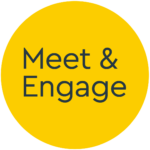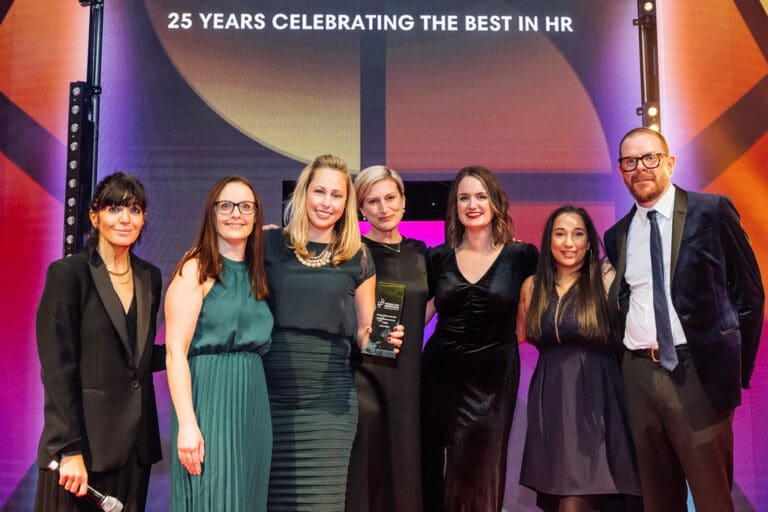It’s an exciting start to 2018 here at Meet & Engage.
From the launch of fantastic new content like the recent M&E Gazette: Driving A Digital Candidate Experience For Campus Recruitment to the launch of our shiny new website.
But one particular highlight is our new Strategic Advisory Board – industry professionals sharing their experiences and insight in order to help make what we do even better.
We sat down with our new Advisory Board member, Nick Thompson, Employer Brand, Social Media and Attraction Manager at Vodafone* to discuss key learnings, tips and thoughts on how we should prepare for the future in the recruitment industry.
We asked;
What are the key challenges you think resourcing and talent professionals will face in 2018?
I think a whole lead are coming our way – Brexit, IR35, GDPR. Candidates have more choice than ever before and organisations aren’t recognising this. Instead, they’re being too arrogant in believing people will want to work for them – there’s no longer a shortage of jobs.
It’s like the millennium bug; no one really knows what’s going to happen but we have to prepare for the worst.
What should be the priority?
I believe all businesses link back to the same issue; a scarcity of candidates and a scarcity of skills, so they all need to be looked at as a whole.
Application numbers are likely to go down and I would advise companies to move from a reactive to a proactive model. You need to source and engage not post and pray.
What trends are driving these challenges?
Everything out of our control are the biggest influencers; there are both political and economic drivers – unemployment rates are low and businesses are recruiting again as confidence is higher.
I think people’s attitudes to work have also changed; they are more confident in setting up businesses and doing their own thing.
Will that be the same in 2018 with Brexit etc?
The opportunists will seize on the fact no one really knows what’s happening and turn the ambiguity into a positive; and of course, the more cautious will stay put.
The not wanting a ‘job for life’ mentality and the use of contractors is driving change as well; companies need to look at how they engage and use a flexible workforce above using temps in the traditional way.
The next year will really divide the people who don’t want to rock the boat and are happy to play it safe and remain in a secure role, and those who have the entrepreneurial spirit to embrace all the changes and make a difference.
Thanks to shows like the Apprentice and Dragons Den, those people have been spurred on to do it on their own and businesses will need to entice them back as they will be essential through this time.
What about the impact on diversity targets or filling scarce skillset roles?
I think we all know that Brexit won’t mean the ultimate closure of our boarders, but the big question is; will we get skilled workers wanting to come to the UK?
People may only want to work here for a year before moving on – I’m afraid the UK isn’t seen as the destination it once was.
We know we’re not growing our own talent in many of these scare skillset areas. I think we’ll see an increased reliance on contractors or companies will need to outsource work on a fixed project basis.
This will probably mean the work going overseas to where these skills exist and we’ll most likely see an increase in costs. Where I think we’ll see the biggest impact however, is at the front-line customer service end of the spectrum.
Admittedly, these types of roles will most likely become automated in the next 5-10 years but the technology to do this is nowhere near yet.
We could see this challenge drive a need to step up investment in developing the technology needed to automate these roles, but this isn’t quick and won’t be ready for 2018.
AI is great and we use it for the fixed process elements of a customer journey; like topping up credit, but it can’t replace a person for the more complex customer journey.
We’re delighted you’ve joined our strategic advisory board – what appealed to you about the invite?
I’ve worked with Meet & Engage for a couple of years and I love that you’re bucking the trend – when everyone else is talking AI and chatbots, you’re enabling engagement.
I believe that in the next 1– 3 years relationships and rapport will be the main driver and enabler for hiring talent, and the fact you have a platform for people to talk, it’s a no-brainer.
Let’s stop trying to automate absolutely everything and recognise that some people actually want to talk to each other. As more of the basic processes are automated, I feel this is what will differentiate employers in the marketplace.
Chatbots can’t engage properly and you’re going to be missing a lot from your candidates – people are essential for understanding your candidates and what they are looking for and we train all of our recruiters to build rapport and relationships with their candidates.
A bot can’t show empathy or understanding, and no one has been able to make one that works really well – look at Twitter and how quickly theirs went rogue.
Bots work on a clone basis which will only ever get you the same as you already have – the same strengths and weaknesses and no progression. It would create companies which are full of the same people, which is not positive for driving innovation or change.
The other thing about working with Meet & Engage is that when I’ve had suggestions or feedback you’ve listened and made it happen.
You’re truly agile and open to ideas and you’re always evolving which is great.
Engagement isn’t a new thing; in the market today finding candidates is the easiest it’s ever been but getting them to talk to you is harder than it’s ever been. I’m keen to find out how we work with you to get there.
*Nick is now Global Employer Brand Manager at IBM (November 2018 – present)
Check out Nick Thompson’s guest article, Get Candidates Actually Talking To You.






